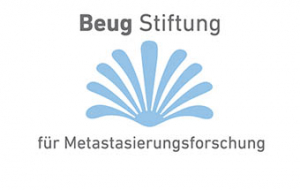Karin E. de Visser, The Netherlands Cancer Institute, Division of Immunology (Prize winner 2015)
Project 2015
Fighting metastatic breast cancer with cancer immunotherapy
“Breast cancer is the most common malignancy among women worldwide. Despite significant progress in treatment options for primary breast cancer, metastasis formation relentlessly drives mortality. The occurrence of distant metastases accounts for over 90% of breast cancer deaths and is currently the most common cause of death for women aged between 35 and 50 years. Clearly, there is an urgent need for novel therapies with efficacious anti-metastatic activity. Recently, clinical breakthroughs have been achieved in advanced cancer patients with cancer immunotherapy that activates the patients’ own immune system to attack cancer cells. It is unclear whether patients with metastatic breast cancer may also benefit from cancer immunotherapy.
The Beug Foundation Metastasis Prize will allow us to perform preclinical studies to assess whether immunotherapy can prevent and/or treat established metastatic breast cancer. Using our novel breast cancer metastasis model that faithfully recapitulates breast cancer metastasis in humans, we will study which therapy combination leads to successful activation of the immune system to fight metastatic disease, and which potential negative regulators of the efficacy of immunotherapy exist in metastatic disease. Knowledge obtained from these pioneering studies supported by this Metastasis Prize will set the stage for new studies aimed at maximizing success of immunotherapy for metastatic disease and ultimately facilitate implementation of immunotherapy in breast cancer patients.”
Report 2017:
The recent breakthrough of immunotherapy has opened new treatment avenues for cancer patients, however, the objective response rates presented so far for breast cancer patients treated with immune checkpoint inhibitors range from 5–20%. Thus, although effective in some breast cancer patients, the majority does not respond to single-agent immunotherapy. The current challenge is to understand how the efficacy of cancer immunotherapy can be enhanced. Thanks to the Beug Foundation Metastasis Research Price, my laboratory was able to study the efficacy of different therapy combinations, including immunotherapy, against metastatic breast cancer, using a pre-clinical mouse tumor model that recapitulates human metastatic breast cancer. We discovered that immune checkpoint inhibitors induce effective –although modest- anti-tumor immunity against metastatic breast cancer when combined with cisplatin, which translated in a longer survival of the mice. Intriguingly, this therapeutic effect was drug dependent, since docetaxel did not synergize with dual immune checkpoint blockade. We observed that more activated CD8+ T cells were infiltrating the mouse breast tumors treated with cisplatin and immunotherapy compared to cisplatin or immunotherapy alone, or to docetaxel and immunotherapy. These findings illustrate the importance of matching immunotherapy with a carefully selected combination partner. In addition, these data are hopeful, since they show us that –despite the low immunogenicity of breast cancer- it is possible to activate effective anti-tumor immune responses. At the same time, these breast tumors eventually escaped the control by the immune system, thus we were not able to sure metastatic breast cancer. We observed that breast tumors activate neutrophils, which suppress the ability of T cells to inhibit metastatic disease. We are currently performing intervention studies in which we combine immunotherapy with cisplatin and neutrophil inhibitors, with the aim to assess whether this results in durable anti-tumor immune responses. In parallel, we have initiated a collaboration with the clinic, through which we are now involved in immunomonitoring of blood of metastatic breast cancer patients that are being treated with immunotherapy, to study whether similar immunosuppressive neutrophil responses are activated in these patients.
Using these preliminary data obtained through the Beug Foundation Metastasis Research Prize, we have recently obtained a large research grant (4-years funding) from the Dutch Cancer Society, to obtain deeper insights into the different sensitivities of metastases localized in different distant organs for cancer immunotherapy, and to understand which chemotherapeutic drugs are the best combination partners for immunotherapy in metastatic breast cancer. In parallel, together with medical oncologist Marleen Kok at the Netherlands Cancer Institute, we have received a Unique High Risk grant (2 years funding) to validate our pre-clinical findings in metastasized breast cancer patients. Needless to say that I am very grateful to the Beug FouFoundation. Without the Metastasis Research Price, we would not have initiated this important and clinically relevant research line in the lab.

